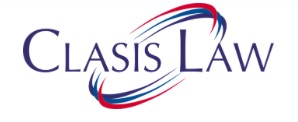30 July, 2018
Insolvency and Bankruptcy Board of India (Insolvency Resolution Process for Corporate Persons) (Third Amendment) Regulations, 2018
On July 4, 2018, the Insolvency and Bankruptcy Board of India (IBBI) notified the Insolvency and Bankruptcy Board of India (Insolvency Resolution Process for Corporate Persons) (Third Amendment) Regulations, 2018 today. The following are the key salient amendments to the regulations:
1. The regulations provide that wherever the corporate debtor has classes of creditors having at least ten creditors in the class, the interim resolution professional shall offer a choice of three insolvency professionals in the public announcement to act as the authorised representative of creditors in each class.
2. An application for withdrawal of an application admitted under section 7, 9 or 10 of the Code (for closure of corporate insolvency resolution process) may be submitted to the interim resolution professional or the resolution professional, as the case may be, before issue of invitation for expression of interest, along with a bank guarantee towards estimated cost incurred for certain purposes under the process.
3. Where rate of interest has not been agreed to between the parties in case of creditors in a class, the voting share of such a creditor shall be in proportion to the financial debt that includes an interest at the rate of eight per cent per annum.
4. Where the appointment of resolution professional is delayed, the interim resolution professional shall perform the functions of the resolution professional from the fortieth day of the insolvency commencement date till a resolution professional is appointed.
5. A meeting of the CoC shall be called by giving not less than 5 (five) days’ notice in writing to every participant.
Companies (Amendment) Act, 2017
On July 5, 2018, the Ministry of Corporate Affairs, issued the Companies (Amendment) Act, 2017. This notification provides August 15, 2018 as the date on which the following provisions of the Companies Amendment Act, 2017, shall come into force:
a) section 15 – relating to prohibition on acceptance of deposits from public,
b) section 16 – relating to repayment of deposits, etc., accepted before commencement of the Companies Act, 2013,
c) section 75 – relating to companies capable of being registered, and
d) section 76 – relating to the obligations of companies capable of being registered under part II of the Companies Act, 2013.
Further, the Ministry of Corporate Affairs, appointed July 5, 2018 as the date on which the provisions of Section 20 (relating to reporting of payment or satisfaction in full of any charge registered in the name of a company) of the Companies Amendment Act, 2017 shall come into force.
Guidelines on Anti-Money Laundering (AML) Standards and Combating the Financing of Terrorism (CFT) /Obligations of Securities Market Intermediaries
On July 4, 2018, the Securities and Exchange Board of India (SEBI) updated the guidelines on Anti-Money Laundering (AML) Standards and Combating the Financing of Terrorism (CFT) /Obligations of Securities Market Intermediaries, in the context of recommendations made by Financial Action Task force (FATF) on anti-money laundering standards is enclosed. Every banking company, financial institution (which includes chit fund company, a co-operative bank, a housing finance institution and a non-banking financial company) and intermediary (includes a stock-broker, sub-broker, share transfer agent, banker to an issue, trustee to a trust deed, registrar to an issue, asset management company, depository participant, merchant banker, underwriter, portfolio manager, investment adviser and any other intermediary associated with the securities market and registered under Section 12 of the SEBI Act, 1992, shall have to adhere to client account opening procedures and maintain records of such transactions as prescribed by the Prevention of Money Laundering Act, 2002 and rules notified there under.
The aforementioned guidelines have been divided into two parts; (i) the first part is an overview on the background and essential principles that concern combating Money Laundering (ML) and Terrorist Financing (TF) and (ii) the second part provides a detailed account of the procedures and obligations to be followed by all registered intermediaries to ensure compliance with AML/CFT directives. These guidelines shall also apply to the branches and subsidiaries located abroad, especially, in countries which do not or insufficiently apply the FATF Recommendations, to the extent local laws and regulations permit. When local applicable laws and regulations prohibit implementation of these requirements, the same shall be brought to the notice of SEBI.
For further information, please contact:
Vineet Aneja, Partner, Clasis Law
vineet.aneja@clasislaw.com





